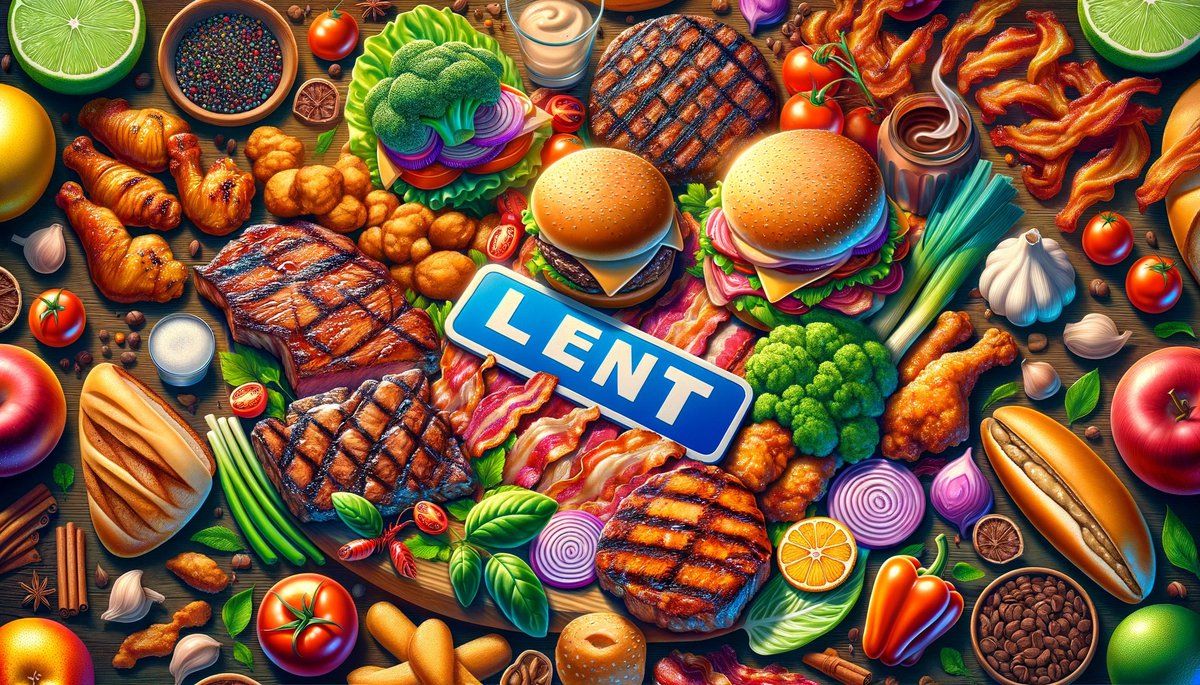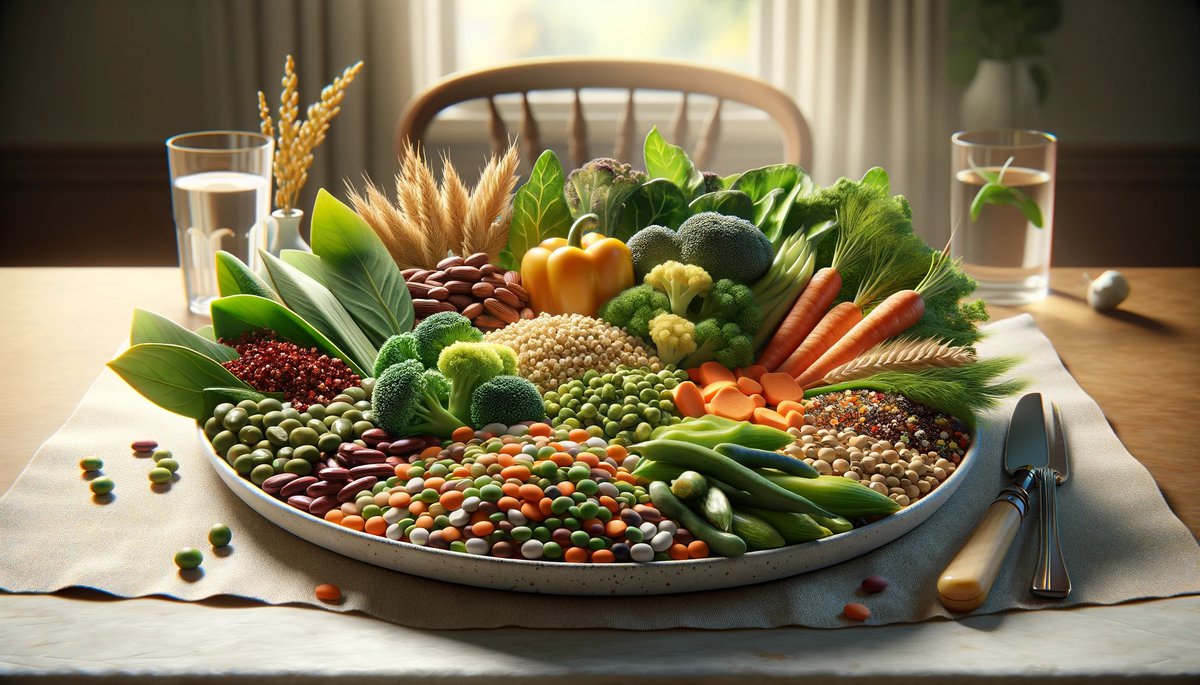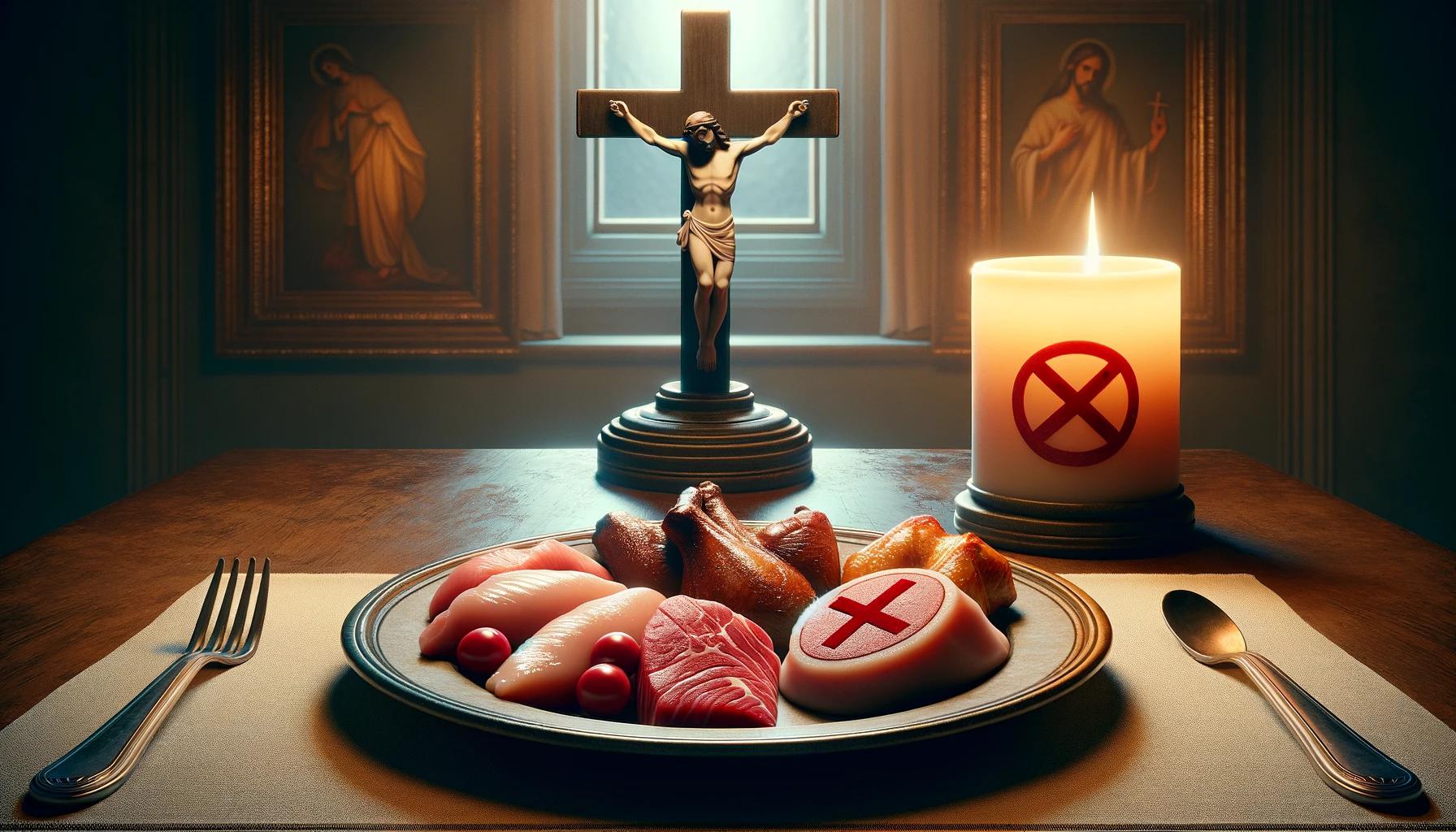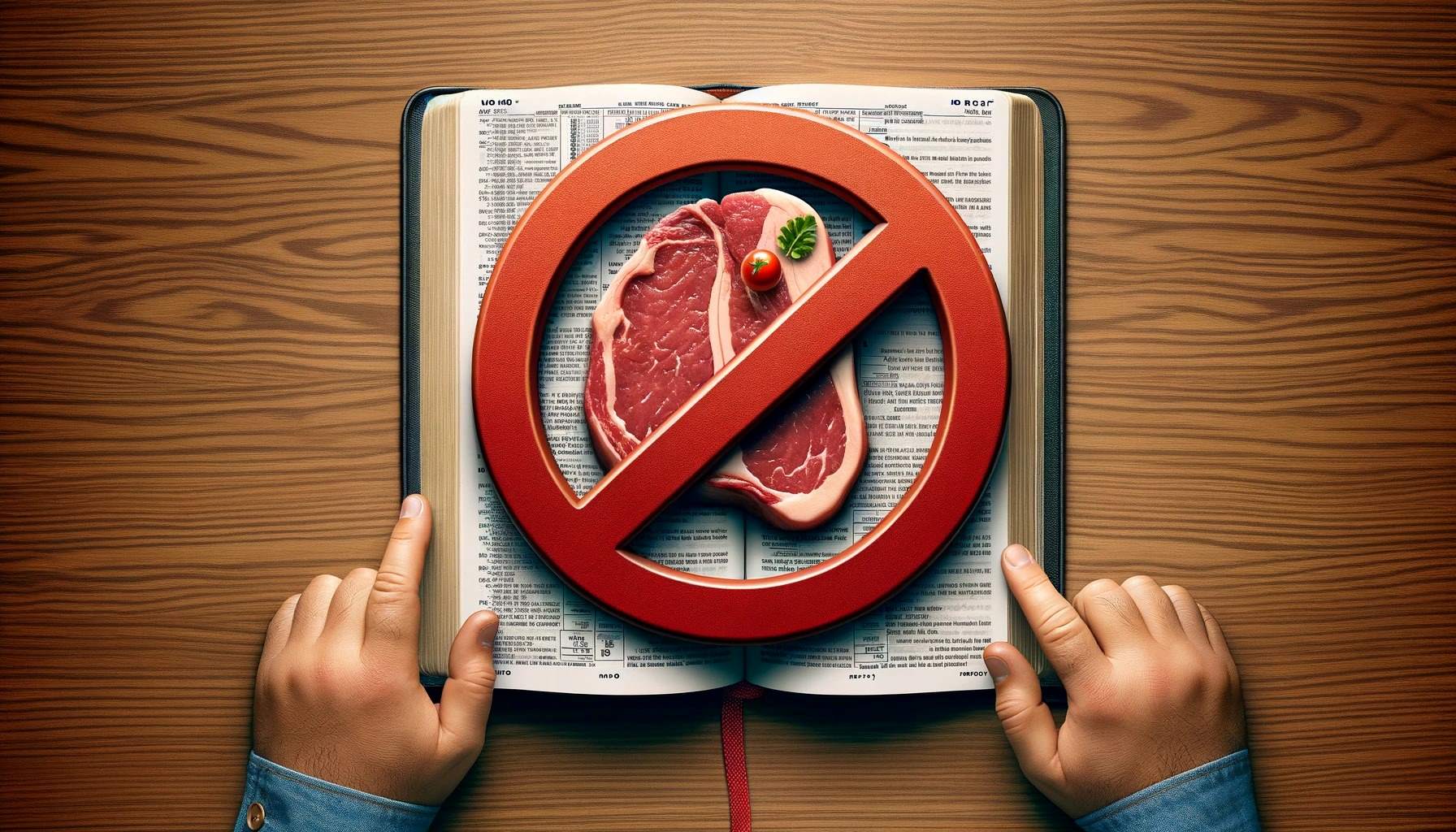Home>Special Themes>What Can You Not Eat During Lent?


Special Themes
What Can You Not Eat During Lent?
Published: February 27, 2024
Peter Smith, Editorial Director at Christian.net, combines deep insights into faith, politics, and culture to lead content creation that resonates widely. Awarded for his contributions to religious discourse, he previously headed a major organization for religious communicators, enhancing dialogue on faith's societal impacts.
Discover what foods are restricted during Lent and learn how to observe this special theme with dietary restrictions. Find out what you can and cannot eat during Lent.
(Many of the links in this article redirect to a specific reviewed product. Your purchase of these products through affiliate links helps to generate commission for Christian.net, at no extra cost. Learn more)
Table of Contents
Traditional Lenten Fasting Practices
Lent is a period of spiritual reflection, self-discipline, and fasting observed by Christians in preparation for Easter. It is a time to commemorate the 40 days that Jesus spent fasting in the desert. Fasting during Lent is a traditional practice that involves abstaining from certain foods and activities as a form of penance and spiritual growth. The purpose of fasting is to focus on prayer, repentance, and self-denial, and to emulate the sacrifice of Jesus. It is a time for believers to draw closer to God and reflect on their faith.
During Lent, Christians are encouraged to practice self-discipline and moderation in their daily lives. Fasting is not only about abstaining from food but also about giving up certain luxuries and indulgences. It is a time to simplify one's life and focus on spiritual growth. Traditional Lenten fasting practices include abstaining from meat on Fridays, as well as fasting on Ash Wednesday and Good Friday. In addition to fasting from specific foods, many Christians also choose to give up other indulgences such as desserts, alcohol, or social media during Lent. This period of self-denial is seen as a way to purify the body and soul, and to refocus on what is truly important in life.
Fasting during Lent is not meant to be a punishment, but rather a way to deepen one's relationship with God. It is a time for believers to examine their lives, repent of their sins, and seek spiritual renewal. By practicing self-discipline and abstaining from certain foods and activities, Christians aim to redirect their focus towards prayer, meditation, and acts of charity. The traditional Lenten fasting practices serve as a reminder of the sacrifices made by Jesus and the importance of spiritual reflection and self-denial in the Christian faith.
Read more: What To Eat During Lent Fasting?
Foods Prohibited During Lent
-
Meat: One of the most well-known prohibitions during Lent is the avoidance of meat, particularly on Ash Wednesday and Fridays throughout the Lenten season. This includes beef, pork, chicken, and other types of animal flesh. The abstinence from meat is a symbolic way for Christians to remember the sacrifice of Jesus and to engage in self-discipline and spiritual reflection.
-
Dairy Products: In some traditions, dairy products such as milk, cheese, and butter are also prohibited during Lent. This restriction stems from the practice of abstaining from foods derived from animals, as a way to honor the spirit of fasting and sacrifice.
-
Eggs: Similar to dairy products, eggs are often considered off-limits during Lent. This prohibition extends to foods that contain eggs as an ingredient, such as certain baked goods and desserts.
-
Fish: While meat is generally avoided, fish is often permitted during Lent. Many Christians opt for fish as an alternative source of protein during this time. Fish fries and seafood dishes are popular choices for Lenten meals.
-
Rich and Indulgent Foods: In addition to specific food items, Lenten fasting also involves avoiding rich and indulgent foods. This includes desserts, sweets, and fatty or fried foods. The focus is on simplicity and moderation in dietary choices.
-
Alcohol: Some Christian denominations discourage the consumption of alcohol during Lent. This abstinence is seen as a way to practice self-discipline and to avoid indulgence during this period of spiritual reflection.
-
Olive Oil: In certain traditions, olive oil is also restricted during Lent. This limitation aligns with the overall emphasis on simplicity and self-denial in dietary habits.
-
Specific Foods on Good Friday: On Good Friday, the day of Jesus' crucifixion, additional restrictions may apply. In some cultures, specific foods such as grains and legumes are avoided on this solemn day.
During Lent, the prohibitions on certain foods serve as a reminder of the significance of self-discipline, sacrifice, and spiritual contemplation in the Christian faith. These restrictions encourage believers to focus on the deeper meaning of the Lenten season and to engage in acts of penance and devotion.
Alternatives to Prohibited Foods
-
Plant-Based Protein: In place of meat, individuals observing Lent can turn to plant-based sources of protein such as beans, lentils, tofu, and tempeh. These alternatives provide essential nutrients and can be incorporated into a variety of dishes, offering a satisfying and nutritious option for Lenten meals.
-
Seafood: While meat is typically avoided, seafood is often permitted during Lent. Fish, shrimp, and other seafood options can serve as alternatives to traditional meat dishes. Many communities embrace the tradition of fish fries and seafood-based meals as a way to honor the Lenten restrictions while still enjoying flavorful and fulfilling options.
-
Dairy-Free Substitutes: For those abstaining from dairy products, there are numerous dairy-free alternatives available. Plant-based milks such as almond, soy, or oat milk can be used in place of cow's milk. Additionally, dairy-free butter and cheese substitutes offer options for creating delicious and satisfying meals without compromising the Lenten fasting practices.
-
Egg-Free Baking: To adhere to the prohibition on eggs, individuals can explore egg-free baking recipes that utilize substitutes such as applesauce, mashed bananas, or commercial egg replacers. These alternatives maintain the texture and flavor of baked goods while aligning with the Lenten dietary restrictions.
-
Simple and Wholesome Ingredients: Embracing the spirit of simplicity and moderation, Lenten meals can feature a variety of whole grains, vegetables, fruits, and nuts. By focusing on natural and unprocessed ingredients, individuals can create nourishing and flavorful dishes that honor the traditions of Lenten fasting.
-
Nutrient-Rich Meals: During Lent, it is important to prioritize nutrient-rich foods to support overall health and well-being. Incorporating a diverse array of fruits, vegetables, whole grains, and legumes can provide essential vitamins, minerals, and antioxidants, contributing to a balanced and nourishing diet throughout the Lenten season.
-
Mindful Cooking and Eating: Lent offers an opportunity to practice mindfulness in cooking and eating. By approaching meal preparation with intention and gratitude, individuals can cultivate a deeper appreciation for the nourishment provided by alternative foods during this period of spiritual reflection and self-discipline.
-
Community and Tradition: Exploring alternative Lenten foods can also be a communal and enriching experience. Sharing recipes, meal ideas, and culinary traditions with family and friends can foster a sense of unity and connection, enhancing the spiritual journey of Lent through the exploration of alternative foods and culinary creativity.
By embracing these alternatives to prohibited foods, individuals can honor the traditions of Lenten fasting while enjoying a diverse and nourishing array of culinary options that support spiritual reflection and self-discipline.
Importance of Fasting During Lent
Fasting during Lent holds profound significance within the Christian faith, serving as a period of spiritual discipline, self-examination, and devotion. The practice of fasting is deeply rooted in the biblical narrative, as it symbolizes the 40 days that Jesus spent fasting in the wilderness, preparing for his ministry. By observing Lenten fasting practices, individuals engage in a tangible expression of their faith, embodying the principles of sacrifice, humility, and spiritual renewal.
The act of fasting during Lent is a deliberate and intentional choice to abstain from certain foods and indulgences, redirecting one's focus towards prayer, repentance, and acts of compassion. It represents a conscious effort to detach from worldly distractions and center one's thoughts on the spiritual journey towards Easter. Through fasting, individuals seek to cultivate a heightened awareness of their dependence on God, acknowledging the sustenance of the spirit over the desires of the flesh.
Lenten fasting also fosters a sense of solidarity with the less fortunate, as individuals willingly embrace simplicity and self-denial. By forgoing certain foods and luxuries, believers are reminded of the blessings they often take for granted, prompting a spirit of gratitude and empathy towards those who experience scarcity. This practice of empathy and social consciousness aligns with the Christian call to serve others and demonstrate compassion, amplifying the communal aspect of the Lenten season.
Furthermore, fasting during Lent serves as a catalyst for personal transformation and spiritual growth. It invites individuals to confront their own vulnerabilities, weaknesses, and attachments, encouraging a process of introspection and self-evaluation. Through the discipline of fasting, believers seek to purify their hearts and minds, releasing themselves from the entanglements of materialism and excess. This intentional purification process paves the way for a deeper connection with God and a renewed commitment to living out the teachings of Jesus.
In essence, the importance of fasting during Lent transcends mere dietary restrictions; it embodies a profound spiritual journey characterized by sacrifice, self-awareness, and devotion. It is a time of embracing simplicity, nurturing the soul, and strengthening the bonds of faith within the Christian community. As believers engage in the discipline of Lenten fasting, they are invited to draw closer to the essence of their faith, embracing the transformative power of self-denial and spiritual reflection.















